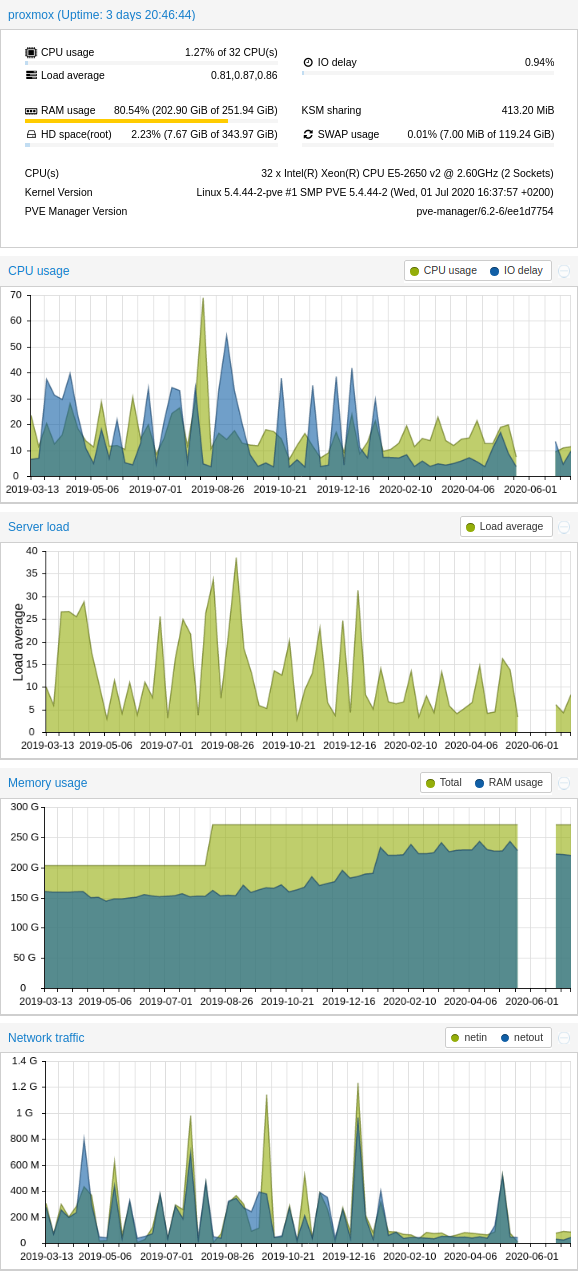Zarathustra[H]
Extremely [H]
- Joined
- Oct 29, 2000
- Messages
- 38,822
So,
I was recently forced to replace the Supermicro motherboard on my server (see sig) and even with the one I ebayed, I am now seeing intermittent hard freezes. (once every ~14 days or so)
I was holding on to the current server for a long time due to the fact that I already have my 256GB of registered ECC RAM, and I wasn't looking forward to rebuying it all in DDR4, but maybe it is time after all.
Anyway, I started playing around with the idea of moving from my old dual socket Intel server with two 8C/16T chips, to a single socket 16C/32T EPYC.
Then I started looking around for parts. Supermicro motherboards seem to exist at somewhat reasonable prices, but EPYC CPU's seem to be going for more than list price everywhere I can find them.
Is there a secret to finding them at the right prices, or is there a shortage, and this is just the way it is?
Much obliged
I was recently forced to replace the Supermicro motherboard on my server (see sig) and even with the one I ebayed, I am now seeing intermittent hard freezes. (once every ~14 days or so)
I was holding on to the current server for a long time due to the fact that I already have my 256GB of registered ECC RAM, and I wasn't looking forward to rebuying it all in DDR4, but maybe it is time after all.
Anyway, I started playing around with the idea of moving from my old dual socket Intel server with two 8C/16T chips, to a single socket 16C/32T EPYC.
Then I started looking around for parts. Supermicro motherboards seem to exist at somewhat reasonable prices, but EPYC CPU's seem to be going for more than list price everywhere I can find them.
Is there a secret to finding them at the right prices, or is there a shortage, and this is just the way it is?
Much obliged
![[H]ard|Forum](/styles/hardforum/xenforo/logo_dark.png)

